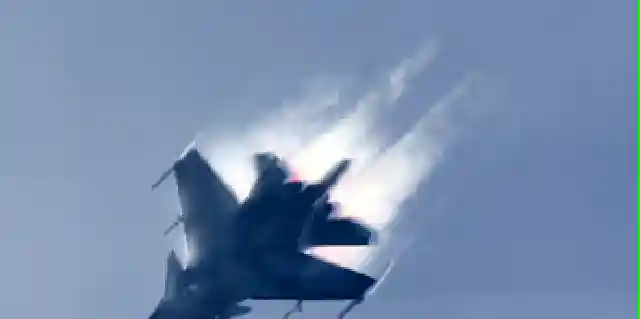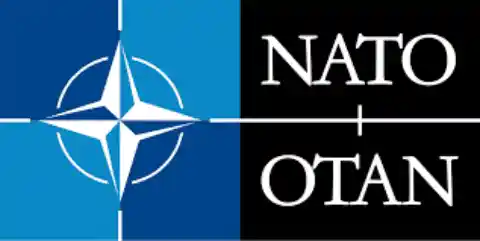Former NATO Secretary General Anders Rasmussen has reported that a group of NATO countries is considering the deployment of troops in Ukraine. This would occur if member states, including the US, fail to offer concrete security assurances to Kyiv during the upcoming alliance summit in Vilnius.
As the critical summit approaches on July 11th, Anders Fogh Rasmussen, who has been serving as the official adviser to Ukrainian President Volodymyr Zelenskiy on Ukraine’s position in a future European security framework, has been travelling throughout Europe and Washington to assess the changing sentiment.
Read Also Russia Ukraine War Live update for today Thursday June 8, 2023
In a recent statement, he cautioned that despite the possibility of a coalition of states offering security assurances to Ukraine, certain parties would not permit the matter of Ukraine’s potential NATO membership to be excluded from discussions at Vilnius.
During a recent statement, the present NATO chief, Jens Stoltenberg, revealed that the matter of security guarantees would be discussed at Vilnius. However, he also emphasised that NATO, in accordance with article 5 of the Washington treaty, solely offers complete security guarantees to its full members. This statement was made in conjunction with remarks from another individual.
Pay attention to 7 new facts you need to know about Lionel Messi’s transfer to Inter Miami
The US ambassador to NATO, Julianne Smith, said: “We are looking at an array of options to signal that Ukraine is advancing in its relationship with NATO.”
Rasmussen said: “If NATO cannot agree on a clear path forward for Ukraine, there is a clear possibility that some countries individually might take action. Poland’s engagement in providing tangible assistance to Ukraine is well-known. And I wouldn’t exclude the possibility that Poland would engage even stronger in this context on a national basis and be followed by the Baltic states, maybe including the possibility of troops on the ground.
According to sources, if Ukraine fails to secure any agreements in Vilnius, the Poles may form a coalition of the willing and intervene. According to the speaker, it is important not to underestimate the sentiments of the Polish people. They believe that their warnings about the true nature of the Russian mentality have been ignored by Western Europe for an extended period of time.
According to his statement, seeking military assistance would be completely legal for Ukraine.
In a bold statement, he suggested that certain states may deem the stakes to be of such great importance that they would deploy their own troops. This could be interpreted as a cautionary message to nations that the potential hazards, which include jeopardising NATO’s solidarity, are not solely linked to Ukraine’s prompt accession to NATO or robust security assurances. Germany is cautious about taking any drastic measures, as it is concerned that such actions may incite Russia.
According to Rasmussen, it is crucial for Ukraine to obtain written security guarantees, ideally prior to the summit, but not within the confines of NATO. In order to deter Russia from any future attacks, a list of requirements has been put forth by officials. These requirements include intelligence sharing, joint Ukraine training, enhanced ammunition production, NATO interoperability, and a sufficient supply of arms.
He said that “after a slow start, momentum was now building behind these ideas”, including in France.
However, he cautioned that assurances of security would not suffice.
According to his statement, certain NATO allies may support security guarantees as a means of sidestepping a genuine conversation regarding Ukraine’s aspirations for membership. In an effort to evade this issue, they are banking on the assurance of security measures. The feasibility of the matter appears to be in question. The NATO issue is expected to be a topic of discussion at the upcoming summit in Vilnius, according to sources. I’ve spoken with several eastern European leaders, and there is a group of hardcore, eastern central European allies that want at least a clear path for Ukraine towards NATO membership.”
He said history showed it was dangerous to leave Ukraine in the NATO waiting room indefinitely. While an invitation for Ukraine to join NATO was not extended at the Vilnius summit, there is a chance that it could be referenced at the upcoming Washington summit next year. According to the source, the path to membership ought to exclude the establishment of preconditions, such as a NATO membership action plan. It is worth noting that neither Sweden nor Finland have been obligated to adopt such a plan as part of their membership path.
According to the speaker, Ukraine would consider anything falling short of that expectation as a disappointment.
Dismissing the notion that Ukraine’s potential membership in NATO should be put on hold until the ongoing conflict is resolved, the individual in question asserted that such a move would effectively grant Putin the power to veto the decision.
The war in Ukraine has changed the world, and the Guardian has covered every minute of it. Since the invasion, over 5,000 articles, films, and podcasts have been produced by our team on the ground, who have bravely endured personal risk and hardship to bring this coverage to the public. Since the outbreak of Europe’s largest war since 1945, our liveblog has provided continuous and comprehensive coverage.
Staying until the end is deemed crucial. Are you willing to join us? There is no substitute for being there – and we’ll stay on the ground, as we did during the 1917 Russian Revolution, the Ukrainian famine of the 1930s, the collapse of the Soviet Union in 1991 and the first Russo-Ukrainian conflict in 2014. With a rich and storied 200-year history, our organisation has been reporting from across Europe during times of both turmoil and tranquilly. We won’t let up now. Can you contribute and show your support for our cause?
For 200 years, the Guardian has been a trusted source of fearless journalism, relied upon by tens of millions during times of crisis, uncertainty, solidarity, and hope. With over 1.5 million supporters from 180 countries, we extend an invitation to join us in financially powering our mission. Our commitment to remaining open to all and fiercely independent is made possible by the collective support of our global community.
Unlike many others, the Guardian has no shareholders and no billionaire owner. With an unwavering commitment to providing impactful global reporting, this individual possesses a strong sense of determination and passion. Their work is characterised by a steadfast dedication to remaining free from any commercial or political influence. Establishing the facts is crucial in reporting, particularly in determining the veracity of statements made by individuals. It is imperative to discern who is being truthful and who is not.
We offer all of this content at no cost, available for public consumption. The reason behind this action is rooted in the belief of providing equal access to information. With the increasing number of individuals staying informed, they are able to stay up-to-date on the latest events that are shaping our world. This allows for a better understanding of the impact these events have on people and communities, ultimately inspiring individuals to take meaningful action. Access to quality and truthful news can be made available to millions of people, regardless of their financial status.
No matter the amount, your funding will sustain our reporting for years to come.
Credit: The Guardian









